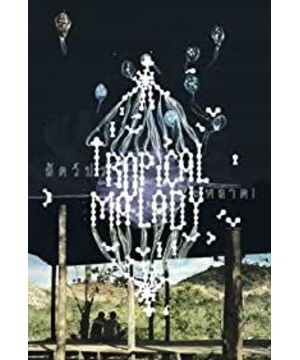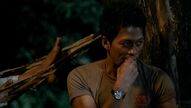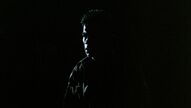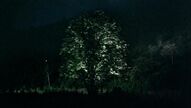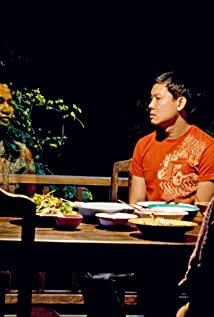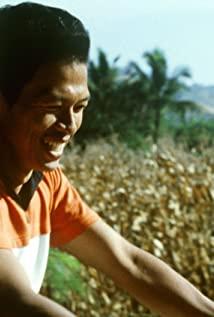The distinct two-paragraph narrative is not a separation of semantics, but uses completely different grammars to generate unified semantics in contrast and intertextuality. It is common sense to think of autumn when you see fallen leaves, and Apichatpong's philosophy is to think of autumn when you see new shoots.
The first half of "Tropical Illness" is an understatement of a restrained same-sex love story, an amalgamation of fragments floating in everyday experience. The love started in two cars running side by side. During the short red light waiting time, the two stuck their heads out of the car to greet each other, and when they met again, KENG was sitting in the passenger seat teaching TONG to drive.
Similar to this: under the eaves during heavy rain, the pet hospital in the middle of the night, the simple street karaoke hall, the old movie theater, the square dance next to the food stall, the flow of eyes and the touch of the body have become the love in these romantic situations. The only clue surging. Rarely do you see such unaware, non-self-proven, and non-narcissistic protagonists in a love story. They release signals with a naive perception. The moments of intimacy are always destroyed by clumsy talk and laughs, but they are completely Can't hurt the quality of love.
Apichatpong's narrative purity is on full display. In this love without cause and effect, the characters do not need to understand, believe and control, go with the flow, what we and the characters experience together is a certain moment, and its authenticity is only when things have changed. to be identified.
The opposite is the scene at the end of the first paragraph. Under the dim street lights at night, TONG licked KENG's clenched hand ecstatically. We saw a certain will, the will to keep the sound, smell and touch of this moment intact. As a result, the sweet atmosphere suddenly turned into sadness, and it was Apichatpong's genius to suggest farewell with reluctance. The climax of love is the eruption of lust, and it is also the beginning of ebb and flow. Let go of KENG's hand, under KENG's watch, TONG sneaks into the dark night step by step, the video plays cheerful songs, KENG rides a motorcycle alone on the road, the picture cuts into a dream, KENG talks and laughs with his comrades in the truck, the surrounding The scenery receded along with the dust that rolled up on the ground.
The music suddenly stopped, KENG woke up in bed, Huang Liang was just a dream. Once the truth is broken, it becomes an illusion that needs to be proven.
If the first half of the film is a dream that is scattered across the sky like meteors and yet to be verified, the second half of entering the jungle is like a black hole that sucks in all the false evidence. Naked TONG turned into a tiger and started a hunting game with KENG in military uniform. The scale of time and the scale of space are no longer the divisions of narrative paragraphs. , the walkie-talkie from the outside world gradually loses its magnetism, and the only clues to indicate the direction are the footprints and scratches of tigers, the corpse and soul of buffaloes, flashing fireflies and hot flashes buzzing with shadows.
The same-sex label in the film is only used as a reference to Apichatpong’s personal complex, or a hint of emotional equivalence. The situational jump from the Milky Way falling into a black hole really means that love is bound to go from attraction to devouring. The director provides many attributions: greed accomplishes our depravity; human temptation and restraint are the fig leaf to maintain morality; in the cycle of karma, killing and surrender are the only destination of all things in the world.
Human and tiger looking at each other - a still close-up, such as the end of the curse on the trail, pushes the hypnotic atmosphere in Apichatpong's film to the extreme, he abandons the playful detachment in his previous works ( Bar neon, square dance), the whole film will be pulled into the abyss of sleep. Fully integrated, natural to pretentious, fear, sadness, sweetness, serenity, all contradictory emotions melted in the jungle. Kill it, kill me by the way. I hide in the night and make fun of the black, because no one can kill ghosts.
View more about Tropical Malady reviews


